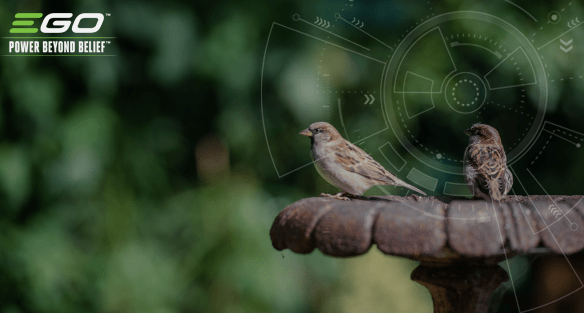From plants such as Juniper and Hawthorne, to bird baths and feeders, there are plenty of ways you can attract wildlife into your garden over winter. We take a look into what you bring into the garden so it comes to life.
The basic necessities
The first place to start is if you can provide the basic necessities required by wildlife, then all sorts of creatures will come to their new home in your garden. These necessities are:
- Food
- Water
- Shelter
- Warmth
What to plant
Trees and shrubs that provide food such as nuts and berries are essential to plant in the garden to attract wildlife over winter. After they are planted, make sure to take proper care of them, whether that be pruning using a chainsaw, or removing their fallen leaves with a leaf blower.
Blackthorn
Not a gin lover? Plant this hedgerow shrub and leave the blue-black sloes on the plant for birds and insects such as Robins and Butterflies to enjoy from September through to January.
Juniper
Sticking with the gin theme here, this gin distiller’s favourite produces small, purple berries year round. Not only will winter wildlife enjoy them, but those birds that migrate back home for the summer will do too.
Hawthorn
A cousin of Blackthorn, Hawthorns produce deep red fruits, known as haws, instead of sloes. These small, tart berries are not fit for human consumption. However, birds such as Redwings and Fieldflares find them a delicacy.
It’s not just birds that enjoy this shrub’s fruit though. Many beneficial garden insects thrive in the habitat this hedge plant provides. The berries arrive in late autumn, but often last through to January, when Waxwings gorge on them.
What else can I put in the garden to attract wildlife?
Bird feeders
It may seem obvious, but implementing bird feeders throughout your garden is sure to bring songbirds, such as the Song Thrush, to feed and echo its vocal chorus.
Fill your bird feeder with anything high in fat such as sunflower seeds. That way, any spilled seeds will grow into towering sunflowers, which field mice love. Just make sure to harvest the sunflower heads for drying so you can collect their seeds for next year. You can do this by removing the head of the plant with a grass trimmer or brush cutter.
Bird baths
Installing a bird bath in your garden encourages birds to come to your plot to bathe, which in turn maintains their feathers so they remain in good condition. When looking for the ideal location to place your bird bath, choose:
- An area of your garden that is relatively flat and level, so the water doesn’t spill out
- A spot that is against a south facing wall, hedge or fence. This spot is less likely to freeze in winter, and if it does, it will thaw out quicker than other areas
- Somewhere where hedgerows are nearby. Shrubs in the hedgerow will provide food and shelter for birds, which they will naturally be attracted to, too
More natural means
In the event of not having a bird feeder to hand, you can use more natural methods to get the same result. Simply spread a pine cone (or several) with something high in fat and minimally processed such as peanut or lard, and then roll it in mixed seeds. Hang the pine cone anywhere in the garden and watch the birds and squirrels come.
One last thing
Keeping your garden messy and less tidy, is actually the easiest and most straightforward way of attracting wildlife to your garden.
By this, we don’t mean leaving your cordless lawn mower outside in the wind and rain over winter (we actually have a guide related to this). However, leaving branches, twigs, fallen fruit and leaves in places where nature intended will actually attract more than you think. All without you having to lift a finger.
To find out more useful tips and information about keeping your garden and grounds maintained, and to read up on other latest news and hot topics, then visit our EGO news page. Here you will find an array of information to guide you through each season this year.
